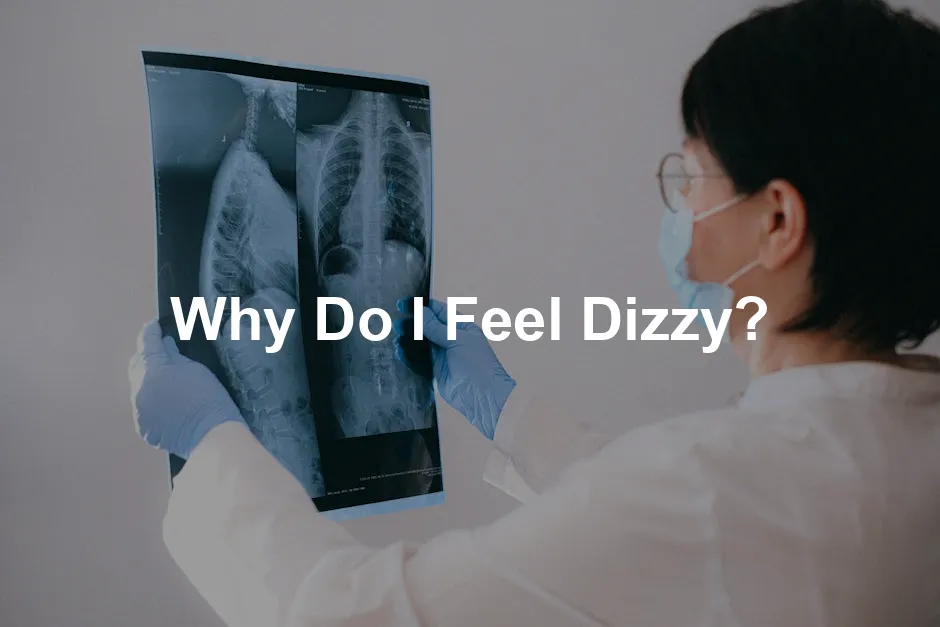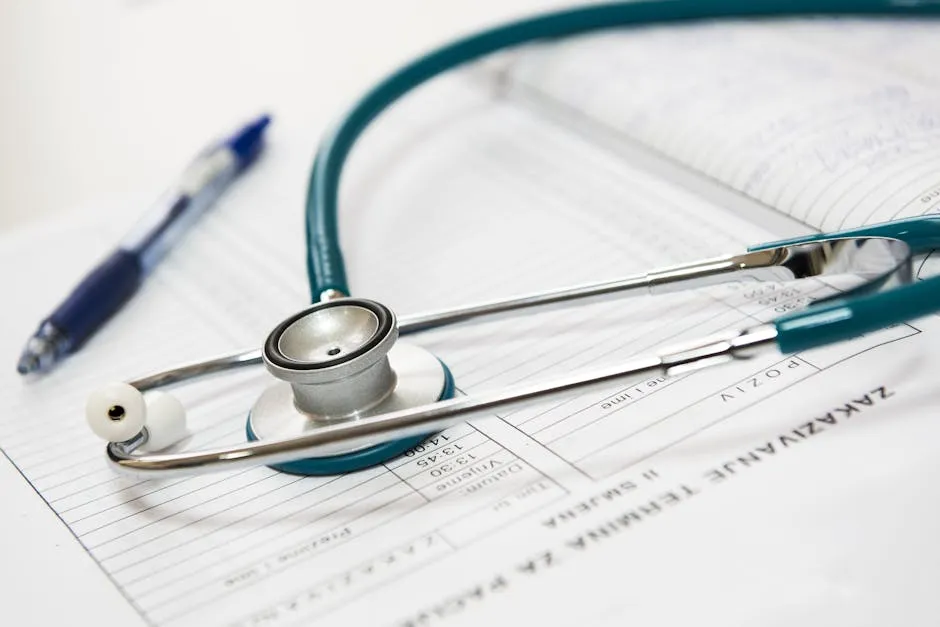
Why Do I Feel Dizzy?
Introduction
Dizziness is a sensation many people know well. It often feels unsettling and can disrupt daily activities. While dizziness is usually not a sign of something severe, understanding its causes is important. In this article, we’ll look at why you might feel dizzy and when it’s time to reach out for help.
Summary and Overview
Dizziness can manifest in several ways, including lightheadedness and vertigo. Lightheadedness makes you feel faint or weak, while vertigo gives a spinning sensation. Many experience dizziness at some point in their lives. In fact, research indicates that nearly one in three adults will experience dizziness at some stage.
Various factors can cause dizziness, from benign issues like dehydration to serious conditions such as heart problems. Recognizing any additional symptoms can be crucial. If dizziness occurs with severe headaches, vision changes, or numbness, it’s vital to seek medical attention promptly. Understanding your body and its signals can help you manage dizziness effectively.

Feeling a bit off-balance? Consider using a Balance Disc Stability Trainer. It’s a fun way to improve your stability while also getting a workout. Plus, who doesn’t want to look like a pro at balancing on one leg?
Explain the Difference Between Dizziness and Lightheadedness
Dizziness and lightheadedness often get mixed up. Understanding the difference can help you identify what’s happening with your body. Dizziness usually describes a sensation of being unsteady or off-balance. You might feel like the room is spinning or you can’t maintain your equilibrium.
On the other hand, lightheadedness feels more like you’re about to faint. You may feel weak or as if you might pass out. While both sensations can be alarming, they often indicate different underlying issues. For example, dizziness can stem from inner ear problems, while lightheadedness is often linked to low blood pressure or dehydration. Recognizing these differences can be crucial for addressing your symptoms effectively.

Causes of Dizziness
Dizziness can result from various medical conditions. One common cause is inner ear disorders. Meniere’s disease affects the inner ear and can lead to severe vertigo, ringing in the ears, and hearing loss. Vestibular neuritis, another inner ear issue, results from viral infections and can cause intense dizziness without affecting hearing.
Cardiovascular problems also play a significant role in dizziness. Conditions like arrhythmias or low blood pressure can reduce blood flow to the brain, leading to feelings of lightheadedness. When you stand up quickly, for instance, your blood pressure may drop, causing dizziness. If you experience dizziness along with chest pain or shortness of breath, it’s crucial to seek medical help immediately.
Other medical conditions can contribute to dizziness, including migraines, certain neurological disorders, and even dehydration. Stress and anxiety can also exacerbate feelings of dizziness. Therefore, understanding your symptoms is key to identifying the underlying cause.

Low Blood Sugar and Nutrient Deficiencies
Low blood sugar, known as hypoglycemia, can lead to dizziness. When your body lacks enough glucose, it can’t function properly. This can make you feel faint, shaky, or confused. Eating regular meals and snacks can help prevent this issue.
Nutrient deficiencies can also result in dizziness. Iron deficiency anemia is a common culprit. When your body lacks iron, it can’t produce enough healthy red blood cells. This can cause fatigue and dizziness due to reduced oxygen flow to the brain. Eating iron-rich foods like spinach, beans, and lean meats can help boost your iron levels. If you suspect you have anemia, talk to your doctor for testing and guidance.
Overall, maintaining balanced nutrition plays a vital role in keeping dizziness at bay. Consider supplementing with Iron Supplement Capsules if you feel low on energy!

Medication Side Effects
Many medications can lead to dizziness as a side effect. This happens when drugs affect blood pressure or balance mechanisms in the body. For instance, antihypertensives like beta-blockers lower blood pressure, which may cause lightheadedness, especially when standing. Diuretics, often used for heart issues, can lead to dehydration and subsequent dizziness.
Antidepressants, particularly selective serotonin reuptake inhibitors (SSRIs), may also induce dizziness. This can occur as your body adjusts to the medication. Additionally, some sedatives and anti-anxiety medications can cause feelings of unsteadiness. If you notice dizziness after starting a new medication, it’s crucial to discuss this with your healthcare provider. They might adjust your dosage or suggest an alternative.
Awareness of these side effects can help you manage your symptoms better. Always consult your doctor before making any changes to your medication regimen.

Anxiety and Stress
Anxiety and stress often manifest physically, and dizziness is a common symptom. When you feel anxious, your body reacts with a “fight or flight” response, releasing stress hormones. This can lead to rapid heart rate and shallow breathing, both of which may cause feelings of lightheadedness. To understand how to cope with anxiety, why are coping strategies essential for handling anxiety in daily life can provide valuable insights.
Coping strategies are vital for managing anxiety and can significantly reduce dizziness related to stress. why are coping strategies essential for handling anxiety in daily life
Stress can tighten muscles and affect your posture, which can further contribute to dizziness. Have you ever felt dizzy just before a big presentation or exam? Many people experience this sensation during high-pressure situations. Recognizing the connection between your mental health and physical symptoms is essential.
To manage anxiety-related dizziness, consider relaxation techniques like deep breathing or mindfulness. Speaking of which, a Deep Breathing Exercise Guide could be just what you need to help you unwind!

Other Common Triggers
Dizziness can arise from various less common triggers. Motion sickness is a well-known cause, often experienced during travel. When your brain receives conflicting signals from your inner ear, eyes, and deeper body parts, it can lead to nausea and dizziness.
Migraines are another trigger; they can cause vertigo and lightheadedness. If you experience these symptoms alongside severe headaches, it might indicate a migraine episode. Lifestyle factors also play a role. Sudden position changes, like standing up quickly, can cause drops in blood pressure, leading to dizziness.
Excessive alcohol consumption can equally affect your balance and coordination, resulting in feelings of unsteadiness. Staying hydrated and monitoring your alcohol intake can help prevent these episodes. If you frequently feel dizzy under these conditions, consider discussing it with your healthcare provider.

When to Seek Medical Attention
Warning Signs
It’s essential to recognize when dizziness may signal something more serious. Seek immediate medical help if you experience dizziness accompanied by chest pain, severe headache, or difficulty breathing. Other concerning signs include weakness or numbness in your limbs, confusion, or vision changes. If dizziness persists or worsens despite self-care measures, do not hesitate to consult a healthcare professional. Early intervention can make a significant difference in addressing any underlying issues.

When to Seek Medical Attention
If you experience persistent dizziness, it’s crucial to consult a doctor. Dizziness can sometimes signal a more serious condition, especially if it’s accompanied by other alarming symptoms. For instance, if you notice chest pain, severe headaches, or difficulty speaking, seek immediate medical help.
Ignoring ongoing dizziness can lead to complications. Your healthcare provider can help determine the cause and recommend appropriate treatment. Even if dizziness seems mild, if it lasts for several days, don’t hesitate to reach out. Better to be safe and get a professional opinion.
Listening to your body is essential. If dizziness is new, sudden, or worsening, make that appointment. Your health is too important to overlook the signs it’s sending you.

Diagnostic Process
Healthcare providers use various methods to diagnose dizziness. They begin with a thorough medical history and physical examination. Expect questions about your symptoms, their duration, and any accompanying signs like nausea or headaches.
Based on initial findings, your doctor may recommend specific tests. Blood tests can check for anemia or blood sugar levels. Balance assessments evaluate how well your body maintains stability. Hearing tests might be necessary if ear issues are suspected. Imaging tests like MRIs or CT scans may also be ordered to rule out neurological conditions.
This diagnostic approach helps pinpoint the underlying cause of your dizziness, ensuring you receive the right treatment.

Managing and Treating Dizziness
Home Remedies
Managing mild dizziness at home can be quite effective. First, it’s essential to stay hydrated. Dehydration is a common culprit behind dizziness. Drink plenty of water throughout the day. Consider investing in a Water Bottle with Time Marker to keep track of your hydration goals!
Another helpful tip is to avoid sudden movements. Getting up too fast can trigger dizziness, so take your time when changing positions. If you feel dizzy, sit or lie down until the sensation passes.
Consider adjusting your diet as well. Eating small, frequent meals can help maintain your blood sugar levels. If you suspect anxiety is a factor, relaxation techniques like deep breathing can be beneficial. Keeping a calm mind helps reduce the intensity of dizziness.

Medical Treatments
Medical treatment for dizziness depends on its root cause. For instance, if inner ear problems are to blame, medications may help alleviate symptoms. Antihistamines are often prescribed for conditions like Menière’s disease.
Physical therapy can also play a significant role, especially for vestibular disorders. This therapy focuses on exercises that help improve balance and reduce dizziness. If you’re looking to enhance your physical wellness at home, consider using a Stability Ball as part of your routine!
In more severe cases, your doctor might suggest specific interventions or surgeries if necessary. Staying in close contact with your healthcare provider is key to finding the most effective treatment plan for your situation.

Conclusion
In this article, we’ve explored the various reasons behind dizziness. From inner ear problems to low blood sugar, many factors contribute to this unsettling sensation. We highlighted the importance of recognizing accompanying symptoms, as they can signal more serious issues.
Understanding dizziness can empower you to manage your health better. If you experience persistent or severe dizziness, don’t hesitate to seek medical advice. Staying informed about your body and its signals is vital, so consult a healthcare provider when necessary. Taking proactive steps can help safeguard your well-being.

FAQs
What is the difference between dizziness and vertigo?
Dizziness refers to a general feeling of unsteadiness. Vertigo specifically describes the sensation that you or your surroundings are spinning.
When should I see a doctor for dizziness?
Seek medical attention if dizziness is accompanied by chest pain, severe headache, or difficulty breathing. Persistent dizziness that doesn’t improve also warrants a visit.
Can anxiety cause dizziness?
Yes, anxiety can lead to dizziness. Symptoms may include lightheadedness, rapid heartbeat, and shallow breathing, often during panic attacks.
What home remedies can help with dizziness?
Staying hydrated, resting, and avoiding sudden movements can alleviate mild dizziness. Eating small, balanced meals may also help.
How is dizziness diagnosed?
Healthcare providers assess dizziness through medical history, physical exams, and tests like blood pressure readings or balance assessments to determine the underlying cause.
Please let us know what you think about our content by leaving a comment down below!
Thank you for reading till here 🙂
And by the way, if you’re looking for ways to manage your stress and anxiety, consider exploring an Natural Anxiety Relief Book. It could provide you with some helpful strategies to calm those nerves!
Finally, don’t forget to treat yourself! A subscription to a Healthy Snack Box Subscription can keep your munchies in check without the guilt!
All images from Pexels




